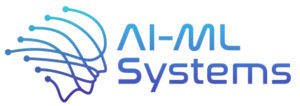Call for Papers – Quantum Symposium
Call for Papers
The symposium invites original contributions spanning theoretical advances, experimental breakthroughs, practical deployments, and visionary concepts.
Topics of Interest Include (but not limited to):
- Quantum Computing: architectures, hybrid systems, error handling techniques, quantum machine learning & AI, quantum-enhanced optimization, quantum algorithms for NISQ & beyond, quantum error-correction & fault-tolerant quantum computing, quantum annealers, quantum software & programming languages, quantum-enhanced solutions for different applications and domains, quantum-inspired computing.
- Quantum Communication & Security: secure quantum networks & quantum internet, quantum cryptography & post-quantum cryptography, quantum for blockchain & IoT.
- Quantum Sensing & Metrology: atomic clocks, gravimetry, magnetometry, quantum(-inspired) imaging, quantum-classical hybridization, quantum-assisted inertial sensing, signal processing & AI for quantum sensing, quantum-enhanced metrology.
- Quantum Materials: Novel materials for quantum devices and photonics.
- Quantum Foundations: quantum information theory, quantum complexity theory, quantum estimation, quantum entanglement & superposition.
- Translational of Quantum Technologies: From-lab-to-market, global/national initiatives, policy frameworks, standardization efforts.
- Paper Submission Deadline:
1st August 2025 10th August 2025 - Notification of Acceptance:
1st September 20257th September 2025 - Camera-Ready Submission:
8th September 202511th September 2025 - Symposium Dates:
7th and 8th October 2025
Submission Tracks
SCQC 2025 welcomes submissions under a two-tier system, allowing authors to select the most appropriate track for their work:
- Proceedings Track
Full papers will be accepted under this track after a thorough peer-review process will appear in conference proceedings and will be submitted to IEEE Xplore as well as other abstracting and Indexing (A & I) databases. Ideal for authors aiming for archival publication and academic visibility. - Non-Proceedings Track
Submissions under this track will also be peer-reviewed for relevance and quality. Accepted contributions will be presented at the symposium via talks or posters but will not appear in proceedings or public archives. Suitable for early-stage research, industry insights, position papers, or work being planned to be directly submitted elsewhere.
- Proceedings Track
Authors must clearly indicate/choose at the time of submission which track (Proceedings or Non-Proceedings) they are applying for.
Submission Guidelines
- The submissions in the proceedings track must be no greater than 6 pages in length including all figures, tables, references, & appendix, and must be a PDF file. A minimum number of 3 pages are required.
- The submissions in the non Proceedings track must be of exactly 2 pages in length including a 35-word abstract and all figures, tables, references, & appendix, and must be a PDF file.
- Submissions must be original work that has not been previously published or under review at another conference or journal. Submissions are expected to articulate a non-technical, clear and insightful description of the main idea and results, their impact, and their importance.
- Reviews will be double-blind: authors name and affiliation should not be included in the submission.
- Submissions must follow the formatting guidelines as given on https://www.ieee.org/conferences/publishing/templates . Those that do not meet the size and formatting requirements will not be reviewed.
- All papers must be submitted as an Adobe Portable Document Format (PDF) document and uploaded through the Microsoft CMT. Weblink: https://cmt3.research.microsoft.com/User/Login?ReturnUrl=%2FAIMLSys2025%2F
The Microsoft CMT service was used for managing the peer-reviewing process for this conference. This service was provided for free by Microsoft and they bore all expenses, including costs for Azure cloud services as well as for software development and support.
